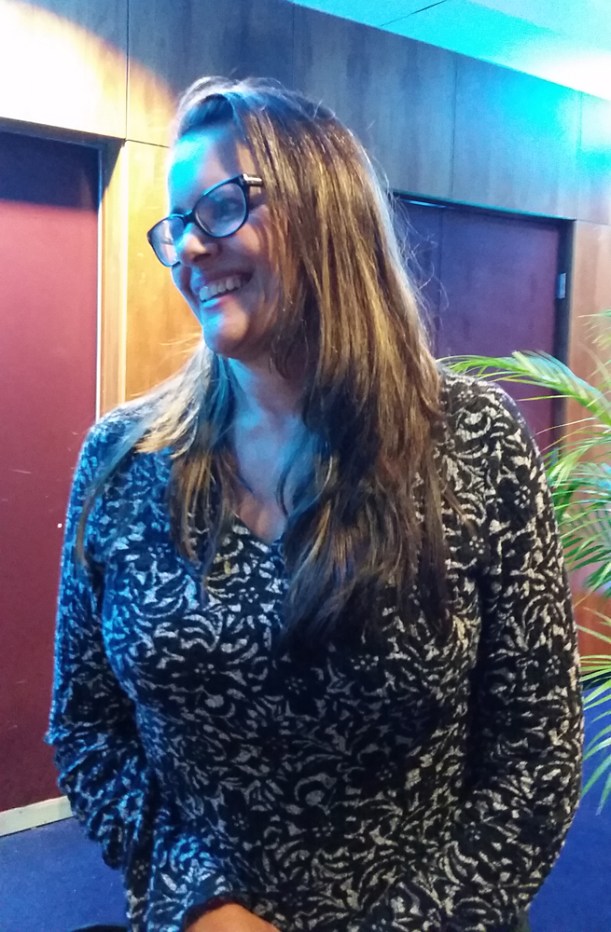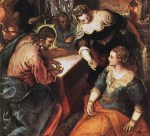
Melinda Tankard Reist speaking at St Stephen’s School, Duncraig, Western Australia on 4 August 2017. Photo: Deirdre Fleming
If these facts about our children don’t give you pause, then you’re not paying attention.
- More than a quarter of 16-24 year olds have a mental disorder.
- One in sixteen of 16-24 year olds have depression.
- One in six have an anxiety disorder.
- There has been a 90% increase in older adolescent self –harm (mostly girls, but some boys) in the last 10 years – cutting themselves, pulling out hair, pulling out eyelashes, pulling out eyebrows.
- There has been a 60% increase in 12 to 14-year-olds hospitalised as a result of self-harm between 1996 and 2006. (Patrick Parkinson, Repairing the Social Environment for Australian Children and Young People, 2011, Vos Foundation)
- One in 100 adolescent girls are anorexic.
- One in ten girls are bulimic.
- One in four teenage girls wants to have plastic surgery, mostly breast implants, with a 50% increase in girls between 15-23 wanting labiaplasty or genital surgery (when there is nothing wrong with them).
- Among boys, body image dissatisfaction for Western men has tripled in the past 25 years.
- Up to a quarter of people suffering from anorexia nervosa or bulimia are male, and almost equal numbers of males and females suffer from binge eating disorders.
- A ‘reverse anorexia’ condition is occurring among men who are dissatisfied with their body image: body dysmorphic disorder (BDD), also called bigorexia, or muscle dysmorphia. In their quest for cheap, muscle-building steroids, these men often travel overseas, but don’t come back alive.
These were just some of the introductory points made by Melinda Tankard Reist, author and media commentator, at a presentation she gave last Friday at St Stephen’s School, Duncraig. A passionate defender of our children’s right to be children, Tankard Reist links our culture’s obsession with sex with the dysfunctional behaviours now becoming common among our youth. Drawing our attention to the sexualisation of our culture, she took us through a visual tour of the porn-invaded advertising and industry landscape. Who hasn’t heard of high-heeled shoes for babies, children’s shirts that say “SL_T, all I need is U”, Trashwhore shorts, Playboy baby clothes (with front-and-centre statements like “Future Player: Lock up your daughters” and “Future Playmate” on their baby onesies), and the not-to-be-missed Cotton On/Typo “Porn is my Saviour” mugs?
Boys, in particular, are at risk from the pornification of the internet, and are exposed to a myriad of sexualised images from advertisers seeking to groom them for a life addicted to their products. Some advertisers have even cleverly linked the pop-ups featuring their sex-products to common spelling mistakes made by children when searching the internet for completely unrelated material. Tankard Reist points out that the male brain is not fully developed until age 25 to 30, and that this oversaturation with sexualised images distorts the perception among teenage boys who think that porn presents what is normal.
It has been demonstrated elsewhere, that porn addiction has serious implications for the happiness of both men and women in later life, with porn-addicted men no longer being able to have normal sexual relations with their wives – resulting in an associated increase in treatments for impotence.

Melinda Tankard Reist in conversation at St Stephen’s School, Duncraig, Western Australia. Photo: Deirdre Fleming
At schools across the country, Tankard Reist is busy engaging children and teenagers in conversation about issues such as teenage self-perception. Crucial to the discussion is whether the young person understands that they are so much more than just their physical appearance. Tankard Reist encourages parents to develop in their children a wider sense of their own value, and praise their children for things other than their appearance in order to help them develop a well-rounded view of themselves as people with intelligence, people of faith, with the ability to love unselfishly, and possessing virtues like kindness and self-control. She helps young women to navigate ways of answering the question, “How do I say no without hurting his feelings?”
Her organisation, Collective Shout, has been instrumental in achieving a number of wins for children. Zoo magazine, the ‘rape manual for boys’, was removed from sale at Coles, and subsequently went out of production, while Grand Theft Auto V, a video game in which you can earn health points by sexually abusing and murdering women, has been withdrawn from sale at Kmart and Target. Another campaign resulted in the removal of billboards advertising local brothels, previously positioned overlooking the playground of a Brisbane boys’ school with the obvious intention of grooming future customers.
Melinda was also one of the first to expose the porn sites connected to the Safe Schools Program. Ostensibly anti-bullying, Safe Schools was developed by Roz Ward, a Marxist LGBTI activist, and former lecturer at La Trobe University (she has now been booted out for alleged misconduct). More and more people are coming to see the Safe Schools program for what it is, an attempt to sexualise and confuse our children about their bodies and challenge ‘heteronormativity’, at an age when this is the last thing they should be thinking about. I recommend everyone read Miranda Devine’s article in the Daily Telegraph, critiquing the Marxist agenda of deconstructing the family. The alternate universe of LGBTI activists sees the traditional family not as the core of a socially cohesive nation, but as something from which we should be liberated.
To smooth the operation of capitalism the ruling class has benefited … from oppressing our bodies, our relationships, sexuality and gender identities alongside sexism, homophobia and transphobia (which) serve to break the spirits of ordinary people (and make us) feel like we should live in small social units and families where we must reproduce and take responsibility for people in those units. (Roz Ward)
Ms Ward is quoted in The Australian as saying:
It’s more like 40-50 per cent of young people who are not exclusively attracted to the opposite sex. That’s how fluid sexuality is headed.
I will have more to say about the (so-called) Safe Schools program in a future post, so stay tuned.
There is much that we as Catholic parents can do to help our children. We can teach them their value in God’s eyes – their dignity as humans created in God’s plan, with a particular vocation and purpose in this life, one which it is our sacred duty to discover and cooperate with, if we want to live a life of joy and abundance. Instead of teaching them that most malleable of words, ‘values’ (HT Iain Benson), let’s teach them actual virtues: prudence, justice, fortitude, temperance, faith, hope and love. At the same time, let’s draw their attention to the seven deadly sins, so they can know what not to aim at: pride, greed, lust, envy, gluttony, wrath and sloth. Let’s teach them to pray for the gifts of the Holy Spirit (wisdom, understanding, counsel, fortitude, knowledge, piety and fear of the Lord), and to be able to demonstrate the fruit of the Holy Spirit in their lives: love, joy, peace, patience, goodness, kindness, faithfulness, gentleness and self-control. When my children were still living under my roof, we prayed for these things every night and they memorised the lists, and although they’re not perfect (but who is?), I can see the fruit in their lives today. For our culture and for your children’s present and future happiness, keep the faith.
Further reading and listening:
- To purchase Melinda Tankard Reist’s books, go to https://collective-shout-online-shop.myshopify.com/
- Fight Against Sexualisation: Collective Shout in Medical Magazine. http://www.collectiveshout.org/fight_against_sexualisation_collective_shout_in_medical_magazine
- For Kids’ Sake: Repairing the Social Environment for Australian Children and Young People, Patrick Parkinson, 2011, Vos Foundation. http://sydney.edu.au/law/news/docs_pdfs_images/2011/Sep/FKS-ResearchReport.pdf
- Australian Psychological Society, Submission to the Parliament of NSW Inquiry into the sexualisation of children and young people https://www.psychology.org.au/Assets/Files/2016-APS-Submission-NSW-Sexualisation-Inquiry.pdf
- Melinda’s webpage: http://melindatankardreist.com/
- Growing up in Pornland http://www.abc.net.au/religion/articles/2016/03/07/4420147.htm
- Iain Benson on Values vs Virtues. http://cradio.org.au/cradiotalks/talk-lecture-series/dawson-centre/purpose-drift-contemporary-cultures/
- Alasdair MacIntyre, After Virtue: A Study in Moral Theory. https://www.amazon.com/After-Virtue-Study-Moral-Theory/dp/0268035040





